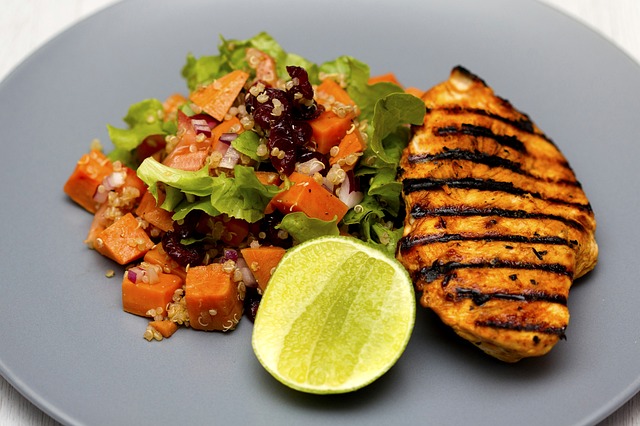Some who may say bodybuilders are built up solely on the produce of their exercises and legal supplements, are more than just a fool. While it is true that 60% of their bulked muscles are due to the strict punishment done to their body, almost 40% is based on consuming and maintaining of what goes inside their body. Having said that, Body-building requires a strict routine to be followed in more ways than one. One of them is the need for a strict diet plan and control, which we will be discussing in this article.
The Importance of Protein in Body-Building
Protein is recognized as the "building block" of muscles for a reason. It contains amino acids, which are the basic building blocks of muscles and essential for muscle development and maintenance. When you do an abundance of lifting and resistance training, you injury up your muscle fibres. Protein is vital for repairing and rebuilding damaged muscle fibres, making them stronger and bigger.
The Protein Requirement
Bodybuilders have a higher protein demand than the ordinary person due to the increased muscle breakdown produced by intensive training. Bodybuilders should aim for 1.2 to 2.2 grams of protein per kilogram of body weight daily. This variation takes into account individual variances as well as training frequency. It's recommended to start at the low end of the range and work gradually up to find what works best for your body.
Sources of High-Quality Protein
Lean Meat: Protein-rich foods include chicken, turkey, lean beef, and fish such as salmon and tilapia. They are also low in fat, making them perfect for bodybuilders who want to keep their physique lean.
Dairy Products: Protein-rich foods such as Greek yogurt, cottage cheese, and low-fat milk can be added in your diet for variety.
Plant-Based Proteins: Vegetarians and vegans can receive enough protein from plant-based protein sources such tofu, tempeh, lentils, quinoa, and nuts. Using a variety of plant-based sources can help you achieve a full amino acid profile.
Protein Supplements: Whey protein, casein protein, and plant-based protein powders are quick and easy ways to meet your protein demands, especially post-workout when quick absorption is critical.
Meal Timing
Timing your protein intake strategically can enhance muscle growth and recovery. Here's a breakdown of when to consume protein:
Pre-Workout: Consume a modest protein meal or snack 1-2 hours before your workout to supply amino acids to your muscles.
Post-Workout: Consume a protein-rich meal or smoothie within 30 minutes to an hour of your workout to initiate the muscle regeneration process.
Throughout the Day: Spread out your protein intake evenly between meals and snacks to ensure a consistent supply of amino acids for muscle regeneration and growth.
Hydration and Protein Digestion
Protein digestion necessitates sufficient hydration. Dehydration can impede digestion and potentially impair protein absorption. To maximize the effects of your protein intake, drink lots of water throughout the day.
Balancing Macro-Nutrients
While protein is necessary for muscle building, it must be balanced with other macronutrients. Carbohydrates fuel your workouts, while healthy fats promote general wellness. To maintain general nutritional balance, include a mix of whole grains, fruits, vegetables, and healthy fats in your diet.\
Conclusion
A bodybuilder's nutrition plan is built around a protein-rich food program. By nourishing yourself with high-quality protein and giving these needs to your body at the right time when it needs it the most, you get quite a lot of steps of achieving the body which you so quite often dream of. Remember, it’s always about consistency and discipline and if you are having difficulties jotting down a diet plan, my primary advice would be to consult with a nutritionist or a dietitian. If you are able to do that, then my friend, you are well on your way to becoming hulk.
 Reviewed by Health Cure
on
September 14, 2023
Rating:
Reviewed by Health Cure
on
September 14, 2023
Rating:

.png)



No comments: